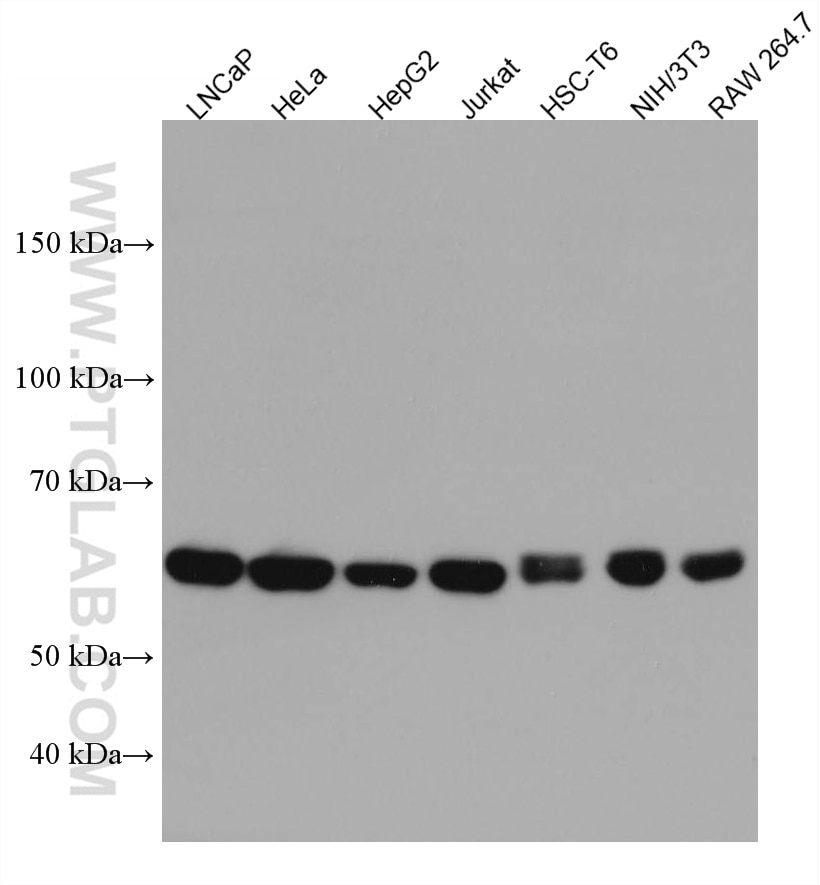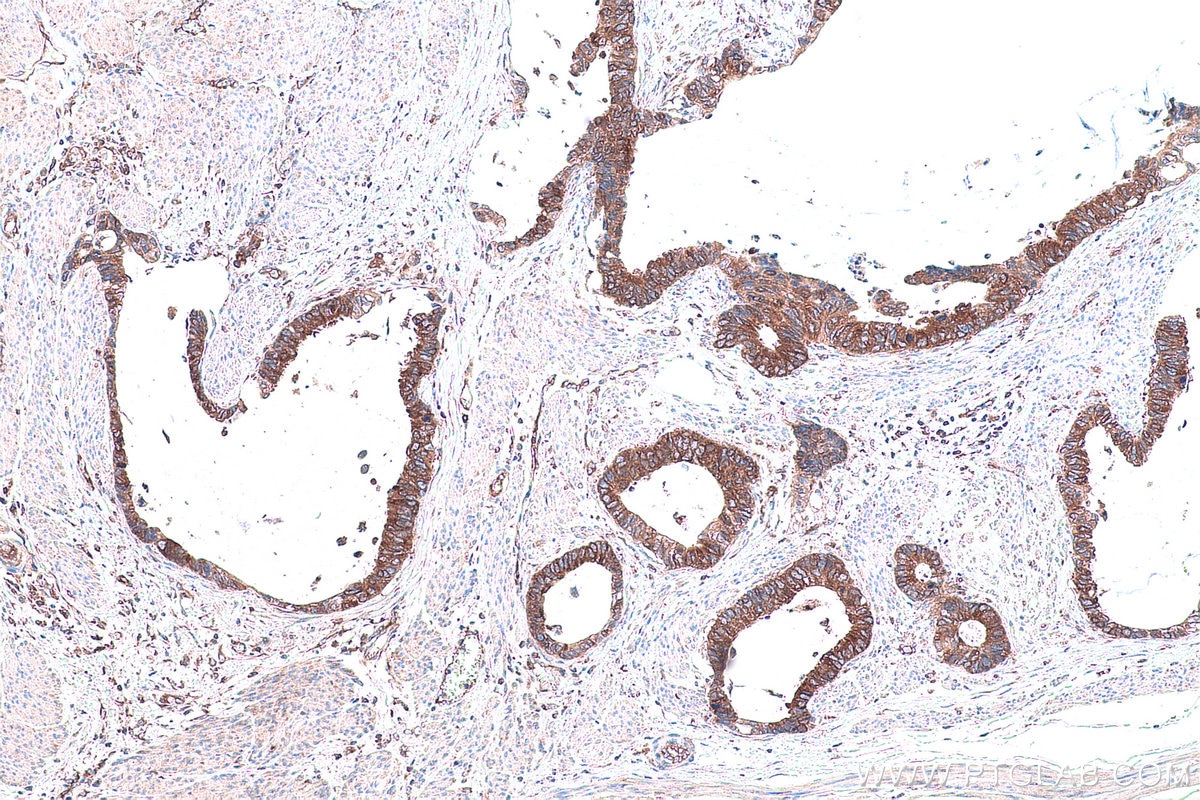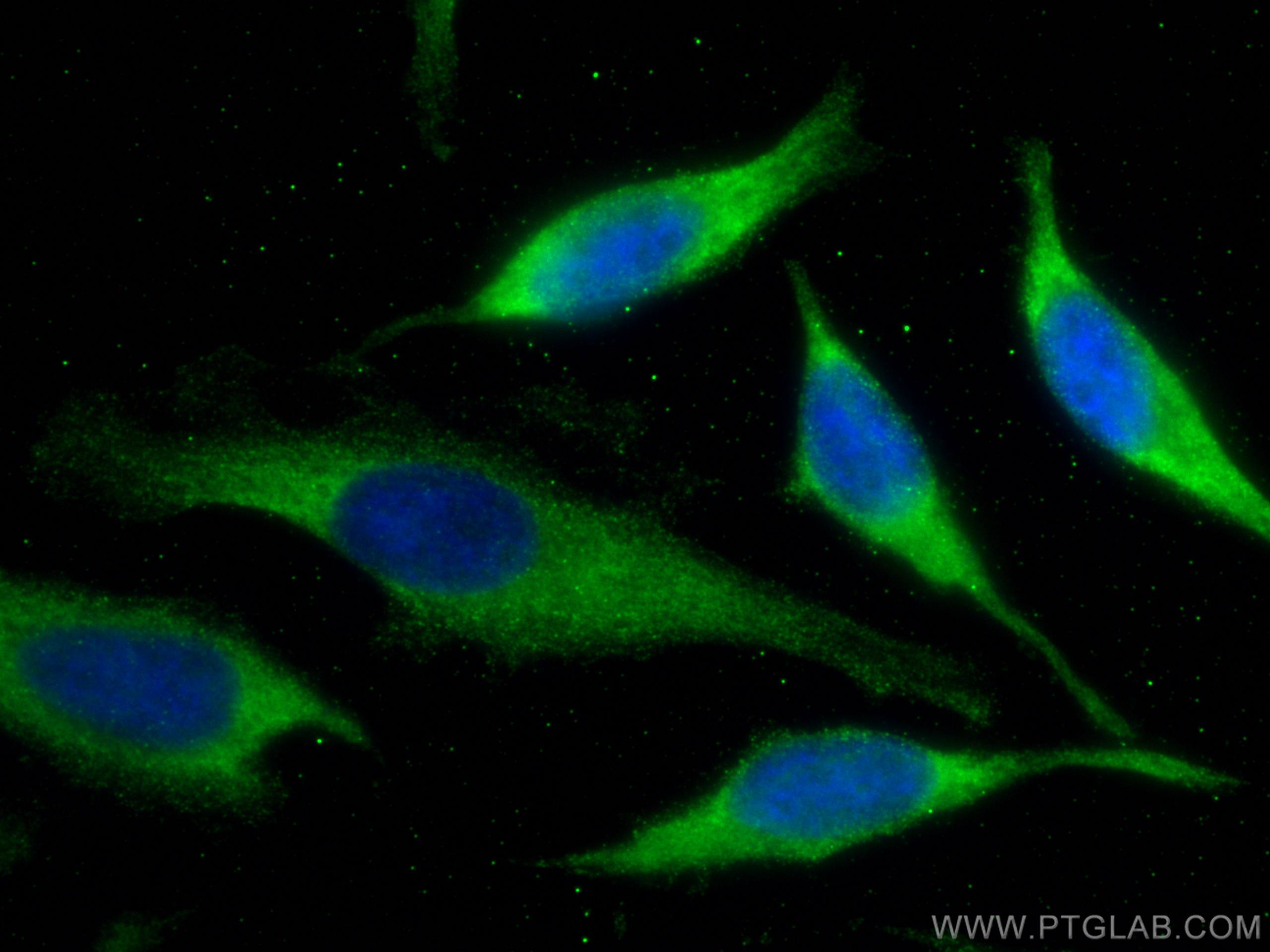Anticorps Monoclonal anti-NARS
NARS Monoclonal Antibody for WB, IHC, IF/ICC, Indirect ELISA
Hôte / Isotype
Mouse / IgG2a
Réactivité testée
Humain, rat, souris
Applications
WB, IHC, IF/ICC, Indirect ELISA
Conjugaison
Non conjugué
CloneNo.
4G5G12
N° de cat : 67711-1-PBS
Synonymes
Galerie de données de validation
Informations sur le produit
67711-1-PBS cible NARS dans les applications de WB, IHC, IF/ICC, Indirect ELISA et montre une réactivité avec des échantillons Humain, rat, souris
| Réactivité | Humain, rat, souris |
| Hôte / Isotype | Mouse / IgG2a |
| Clonalité | Monoclonal |
| Type | Anticorps |
| Immunogène | NARS Protéine recombinante Ag6656 |
| Nom complet | asparaginyl-tRNA synthetase |
| Masse moléculaire calculée | 63 kDa |
| Poids moléculaire observé | 63 kDa |
| Numéro d’acquisition GenBank | BC001687 |
| Symbole du gène | NARS |
| Identification du gène (NCBI) | 4677 |
| Conjugaison | Non conjugué |
| Forme | Liquide |
| Méthode de purification | Purification par protéine A |
| Tampon de stockage | PBS only |
| Conditions de stockage | Store at -80°C. 20ul contiennent 0,1% de BSA. |
Informations générales
Asparagine-tRNA ligase (NARS) belongs to the class-II aminoacyl-tRNA synthetase family. Catalyzes the attachment of asparagine to tRNA(Asn) in a two-step reaction: asparagine is first activated by ATP to form Asn-AMP and then transferred to the acceptor end of tRNA(Asn) (PubMed: 9421509). In addition to its essential role in protein synthesis, acts as a signaling molecule that induced migration of CCR3-expressing cells. The NARS levels were higher in tumor tissues compared with adjacent normal tissues, and positively associated with LN metastasis. NARS may serve as a potential biomarker for lung adenocarcinoma (ADC) diagnosis/prognosis (PMID: 27161446).







